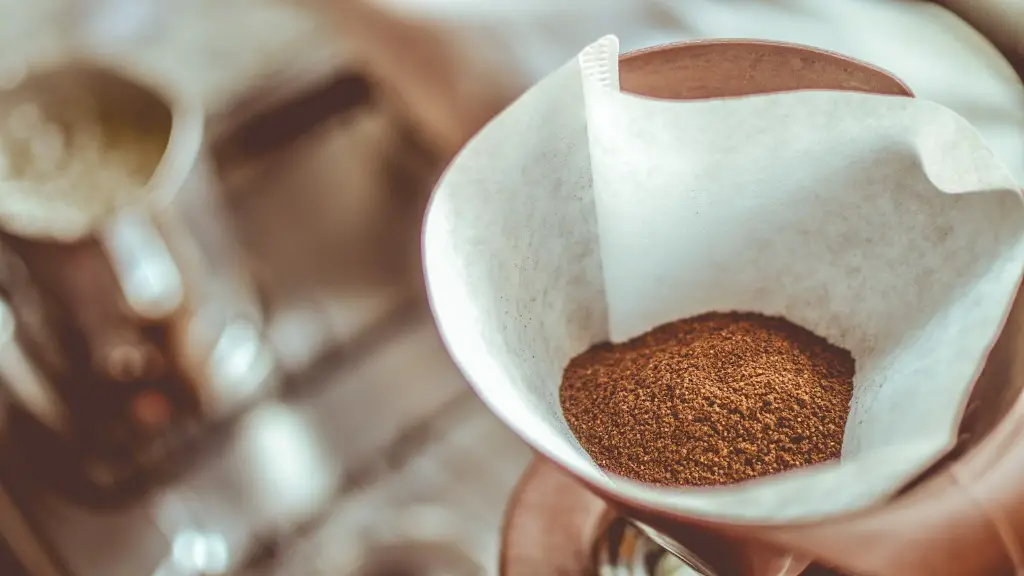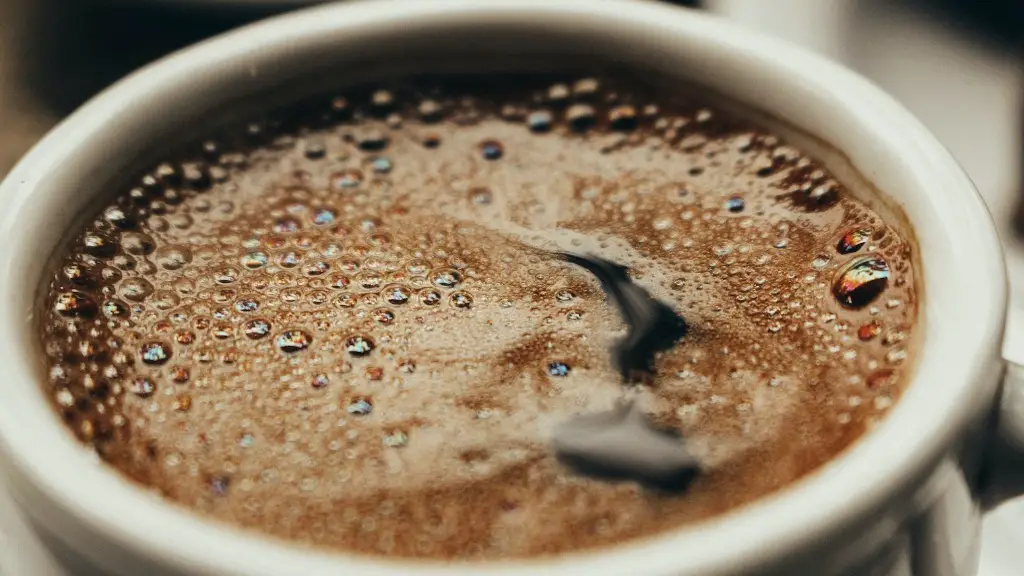Coffee is undoubtedly one of the most popular beverages in the world and its consumption has been rising steadily over the years. For many people, it is an essential part of their daily routine. While coffee can increase energy and alertness, it is important to be aware of the effects it might have on our body and how much of it is healthy to drink. In this article we are going to look at how many hours before bed one should stop drinking coffee.
One of caffeine’s main effects is that it blocks the action of an inhibitory neurotransmitter in the brain, called Adenosine. This has the effect of making us more alert and can improve our mood, memory and general cognitive function. It also helps keep us from feeling as sleepy. However, caffeine is a stimulant, so it can also work against our natural sleep-wake rhythm. The recommended amount of coffee to drink is typically no more than 400 milligrams of caffeine per day.
How many hours before bed time one should stop drinking coffee depends on the individual and the time of day. Caffeine typically has a six-hour half-life, which means that if you consume it at around 6pm, it will still produce its effects until around 12 am. Therefore, it is advisable to avoid drinking coffee six hours before bedtime. Bear in mind, however, that everyone responds differently to caffeine and sensitivity to it can vary widely. Some people may find that they have trouble falling asleep if they drink coffee too close to bedtime, while others may be able to handle it. It is important to experiment and find out which works best for you.
It is likely that coffee can affect the quality of your sleep as well. Studies have found that caffeine consumption in the late afternoon or evening can lead to difficulty falling asleep, reduced total sleep duration, and increased wakefulness during the night. All of this can have a significant impact on how rested we feel the following day. For this reason, it is best to avoid having coffee too late in the day. Even people who do not feel the effects of caffeine at bedtime should limit their consumption in the evening hours.
Aside from the physical effects of coffee, there is also some evidence to suggest that it could be detrimental to our mental wellbeing. One study found that drinking coffee close to bedtime was associated with depression and anxiety. This could be related to the fact that caffeine promotes the release of cortisol, an important hormone for the body’s response to stress. The anxiety and alertness that come with elevated cortisol levels can make it harder to relax and fall asleep.
Finally, it is important to be mindful of how much caffeine you are consuming throughout the day. Drinking too much can lead to side effects such as restlessness, irritability and headaches. If you find yourself consuming more than recommended, it is a good idea to gradually reduce your intake. Additionally, it is important to stay hydrated by drinking plenty of water throughout the day. This will help you keep your energy levels up and reduce the need for caffeine.
Eliminating Coffee From Diet
For some people, it may seem impossible to give up their love of coffee, but it can be done. Eliminating coffee from your diet can be an effective way to reduce anxiety as well as improve sleep. To do this, it is important to start by cutting down on your daily intake. For example, if you usually have two cups in the morning, try to reduce it to one cup. You can also switch to a low-caffeine beverage such as herbal tea or decaf coffee.
It is also important to be aware of hidden sources of caffeine. Chocolate, energy drinks, and some herbal supplements can all contain high levels of caffeine. Keeping track of what you are consuming is key to reducing your overall intake. Once you have successfully reduced your intake, you can then start to eliminate coffee from your diet completely. Doing this gradually, rather than suddenly, can make it easier to adjust.
Drinking coffee for most is an enjoyable and comforting experience. However, if it is not done carefully, it can have a detrimental effect on our sleep and mental health. Taking the time to understand how much caffeine is healthy for you and being aware of the effects it might have can help ensure that it does not disrupt your sleep-wake rhythm.
Coffee Alternatives
If you are looking for an alternative to coffee, there are a few other beverages that could provide a similar pick-me-up effect. For example, herbal teas such as green or peppermint tea have a natural stimulant effect and provide antioxidants. Green tea is also known to boost mental focus and clarity. For a more traditional option, yerba mate can provide a similar energizing effect and is often consumed as a social beverage in South America.
Another option to consider is natural energy drinks. These drinks are made with ingredients such as guarana, yerba mate and green tea and are usually naturally sweetened. They are a great way to boost energy in the afternoon without the use of caffeine. For a sweet kick, try adding some honey or maple syrup to herbal teas and natural energy drinks. This can give you an energy shot without the need to rely on coffee.
Finally, there are some dietary changes you can make that can also help you stay energized during the day. Eating a well-balanced meal can help reduce fatigue, as well as incorporating foods that are rich in vitamins and minerals such as leafy greens and nuts. Eating small meals throughout the day can also help sustain your energy levels.
Long Term Effects Of Coffee
Coffee is generally considered safe to consume in moderation, however, it is important to be aware of the potential long-term effects of heavy consumption. One of the most common side effects is a fast or irregular heart rate. Studies have also found that drinking too much coffee can increase blood pressure and cholesterol levels as well as raise the risk of type 2 diabetes. Additionally, there is some evidence to suggest that it could increase symptoms of anxiety and depression.
Regular consumption can also increase tolerance levels and lead to caffeine dependence. This means that if you suddenly stop drinking coffee, you might experience withdrawal symptoms such as headaches and fatigue. To avoid this, it is best to gradually decrease your consumption to allow your body to adjust.
Finally, it is important to be aware of the effects of decaffeinated coffee. Decaffeinated coffee does still contain smaller amounts of caffeine, so it can still have stimulating effects. Additionally, it is usually processed with chemicals so it is important to make sure you are choosing a high quality product.
Tips To Reduce Coffee Intake
In conclusion, reducing our coffee intake requires some planning and commitment. Here are some tips on how to make it easier: try to find times of the day when you do not need caffeine to get through, such as after lunch or after dinner. Additionally, setting boundaries can help you stay in control. For example, deciding to only drink coffee in the morning or only before midday can be effective in limiting your intake.
If you are having difficulty cutting down, one strategy could be to switch your primary beverage to something else. When you feel the urge to drink coffee, reach for the alternative instead and over time you will find you do not crave coffee as much. Finally, do not forget to reward yourself for your progress. Having something to look forward to can help you stay on track and motivated.




